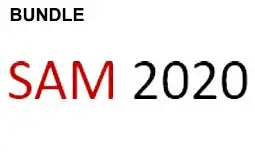Improved Model-Based Channel Tracking for Underwater Acoustic Communications
Yuxing Wang, Jun Tao, Le Yang, Fei Yu, Chunguo Li, Xiao Han
-
Members: FreeSPS
IEEE Members: $11.00
Non-members: $15.00Length: 12:45
09 Jun 2020
For tracking time-varying underwater acoustic
(UWA) channels, a state-space model based scheme generally
outperforms a direct adaptive method. The success for the former
depends on the choice of a proper state transition model as well as
accurate estimation of the model parameters. The autoregressive
(AR) transition model has proven to be useful and the key is to
determine the AR coefficients so as to achieve a good channel
tracking performance. In this paper, we revisit the problem
of determining the AR coefficients via Yule-Walker equation,
for which the required autocorrelations are estimated as an
ensemble average of estimated channel impulse responses (CIRs).
Different from existing scheme employing least squares (LS)
channel estimation, we propose to obtain a sequence of CIR
estimations via adaptive schemes. The advantage is twofold: first,
complexity reduction is achieved and the saving can be significant
for a UWA channel with extensive delay spread; second, improved
tracking performance is achieved as the implicit assumption
by the LS method that the channel remains constant over a
block is not required. We also propose to dynamically update
the autocorrelations and AR coefficients as the channel tracking
progresses, such that the variation in the channel statistical
property can be captured. Both simulations and experimental
results verify the performance gain of the proposed model-based
channel tracking scheme.
(UWA) channels, a state-space model based scheme generally
outperforms a direct adaptive method. The success for the former
depends on the choice of a proper state transition model as well as
accurate estimation of the model parameters. The autoregressive
(AR) transition model has proven to be useful and the key is to
determine the AR coefficients so as to achieve a good channel
tracking performance. In this paper, we revisit the problem
of determining the AR coefficients via Yule-Walker equation,
for which the required autocorrelations are estimated as an
ensemble average of estimated channel impulse responses (CIRs).
Different from existing scheme employing least squares (LS)
channel estimation, we propose to obtain a sequence of CIR
estimations via adaptive schemes. The advantage is twofold: first,
complexity reduction is achieved and the saving can be significant
for a UWA channel with extensive delay spread; second, improved
tracking performance is achieved as the implicit assumption
by the LS method that the channel remains constant over a
block is not required. We also propose to dynamically update
the autocorrelations and AR coefficients as the channel tracking
progresses, such that the variation in the channel statistical
property can be captured. Both simulations and experimental
results verify the performance gain of the proposed model-based
channel tracking scheme.



